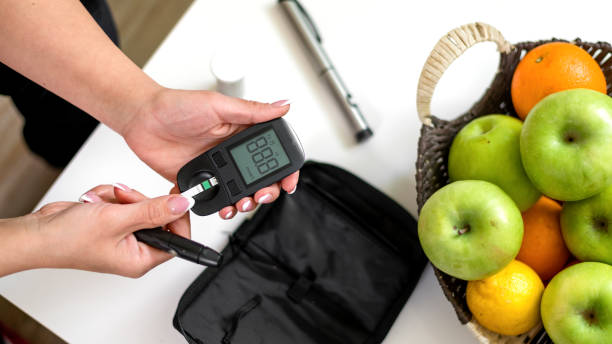In today’s modern society, diabetes has become a prevalent health issue affecting millions of people worldwide. With the rising prevalence of diabetes, there has been an increased focus on the role of sugar consumption in diabetes development. Understanding this link is crucial for individuals who want to manage their health effectively. In this article, we will explore the intricate relationship between sugar consumption and diabetes, separating myths from facts, examining the impact of different types of sugars on blood sugar levels, and providing guidance on how to lower the risk of this metabolic disorder.
Understanding Diabetes: A Comprehensive Overview
Before delving into the link between sugar consumption and diabetes, it is essential to have a comprehensive understanding of this metabolic disorder. Diabetes is a chronic condition characterized by high blood sugar levels due to the inadequate production or utilization of insulin. There are several types of diabetes, with the most common being Type 1 diabetes, Type 2 diabetes, and gestational diabetes.
Diabetes affects millions of people worldwide and can have a significant impact on an individual’s quality of life. It requires careful management and monitoring to prevent serious complications. Understanding the different types of diabetes and their causes is crucial in developing effective treatment plans and lifestyle adjustments to control the condition.
Exploring the Different Types of Diabetes

Type 1 diabetes typically develops in childhood and occurs when the body’s immune system mistakenly attacks and destroys the cells in the pancreas responsible for producing insulin. On the other hand, Type 2 diabetes develops primarily due to lifestyle factors such as poor diet, lack of physical activity, obesity, and genetics. Lastly, gestational diabetes affects pregnant women and usually resolves after childbirth.
Each type of diabetes requires a tailored approach to management. Type 1 diabetes often involves daily insulin injections or the use of an insulin pump to regulate blood sugar levels. Type 2 diabetes management focuses on lifestyle changes, including diet modifications, regular exercise, and sometimes oral medications or insulin therapy. Gestational diabetes is typically managed through diet and monitoring blood sugar levels throughout pregnancy.
The Impact of Diabetes on the Body
Diabetes can have serious implications for various systems in the body. High blood sugar levels can damage blood vessels, leading to complications such as heart disease, stroke, kidney disease, and eye problems. It is crucial to manage diabetes through lifestyle modifications, medication as prescribed by healthcare professionals, and regular monitoring of blood sugar levels.
Complications from uncontrolled diabetes can be severe and life-threatening. Individuals with diabetes must be vigilant in managing their condition to reduce the risk of long-term complications. Regular visits to healthcare providers, including endocrinologists, nutritionists, and ophthalmologists, are essential in maintaining overall health and preventing diabetes-related complications.
Debunking the Myth: Sugar and Diabetes Connection
One common misconception is that consuming sugar directly causes diabetes. However, it is important to clarify that sugar consumption alone does not directly lead to diabetes development. Rather, the overall diet and lifestyle choices play a significant role in diabetes risk. Let’s explore the truth about sugar and its effects on diabetes risk.
Unveiling the Truth About Sugar and Its Effects on Diabetes Risk

Excessive sugar consumption, particularly added sugars, can contribute to an increased risk of developing Type 2 diabetes. Consuming sugary beverages, refined carbohydrates, and processed foods can lead to weight gain, insulin resistance, and inflammation – all of which are risk factors for diabetes. It is crucial to reduce the intake of these sugar-laden foods and opt for healthier alternatives to mitigate the risks.
Furthermore, it’s essential to understand the glycemic index (GI) of foods when considering their impact on blood sugar levels. Foods with a high GI, such as sugary snacks and white bread, can cause rapid spikes in blood sugar, putting a strain on the body’s insulin response over time. On the other hand, foods with a low GI, like whole grains and legumes, are digested more slowly, leading to gradual and steady increases in blood sugar levels.
Exploring the Role of Physical Activity in Diabetes Prevention
In addition to dietary choices, engaging in regular physical activity is crucial for diabetes prevention. Exercise helps improve insulin sensitivity, allowing cells to better respond to insulin and regulate blood sugar levels effectively. Incorporating a combination of aerobic exercises, strength training, and flexibility exercises into your routine can have significant benefits in reducing diabetes risk.
Decoding the Impact of Fruit Juice on Blood Sugar Levels
Fruit juice, although natural, can cause a rapid spike in blood sugar levels due to the absence of fiber that would otherwise slow down the absorption of sugar into the bloodstream. It is advisable to consume whole fruits instead of juices to benefit from the natural sugars while also getting the nutritional value and fiber content.
Exploring the Role of Natural Sweeteners in Diabetes Management
When it comes to managing diabetes, natural sweeteners like stevia, monk fruit, and erythritol can be viable alternatives to traditional sugar. These sweeteners have a minimal impact on blood sugar levels and can be used in moderation to add sweetness to meals and beverages without causing harmful fluctuations in glucose levels.
Navigating the Complexities of Diabetes: What You Need to Know
In conclusion, understanding the link between sugar consumption and diabetes is crucial for managing one’s health effectively. While sugar consumption alone does not directly cause diabetes, it can contribute to the development of Type 2 diabetes when consumed in excess. Natural sugars found in fruits can be enjoyed in moderation, whereas added sugars should be limited or avoided to lower the risk of diabetes. By adopting a balanced diet, engaging in regular physical activity, and making lifestyle choices that promote overall well-being, individuals can proactively reduce their risk of developing diabetes. Remember, knowledge is power when it comes to your health, so stay informed and take proactive steps in managing and preventing this metabolic disorder.